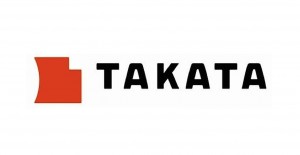Even as its one of its key safety suppliers rejects a call for a nationwide recall of potentially defective airbags, Honda North America said it will expand the existing service action that originally focused on only select portions of the U.S.
The split between Honda and embattled Japanese partsmaker Takata Corp. came during a heated hearing before a Congressional subcommittee probing a problem now linked to at least five deaths in the U.S. alone.
In October, the National Highway Traffic Safety Administration ordered the recall of 7.8 million older vehicles operating in Southern Florida and other high-humidity areas because of a propensity to misfire during collisions, potentially sending deadly shrapnel into the passenger compartment. NHTSA has since said the evidence calls for a broader recall of driver-side Takata airbags, though it is still studying potential problems with bags used on the passenger side of vehicles.
While a top Takata official told Congressmen the evidence “does not support” a broader recall,” its largest customer, Honda, said it would accept NHTSA’s demand for a nationwide recall.
(For more on Wednesday’s hearings, Click Here.)
“Why are we doing this? Because our customers have concerns and we want to address them,” said the automaker’s Executive Vice President Rick Schostek.
The split is particularly significant for several reasons. For one thing, Takata is the single largest airbag supplier for Honda. It is also part of the carmaker’s keiretsu, a family of intertwined companies that normally stands by one another in a crisis. Honda has already indicated it will consider shifting future airbag purchases to other vendors.
While a precise cause of the exploding airbags has not been uncovered, it appears linked to manufacturing defects at two Takata plants in North America. More specifically, it involves the inflators used to fill an airbag when a crash occurs. They appear to become unstable over time, with NHTSA and Takata initially agreeing that the problem is most severe in areas with high humidity. But after a fifth death was reported in North Carolina, the federal safety agency decided that driver’s side bags should also be covered, a move that could expand the recall to more than 20 million vehicles.
(Motorists intrigued by autonomous vehicles but worry about safety, reliability, finds new study. Click Here for the story.)
Hiroshi Shimizu, senior vice president of global quality assurance at Takata, told the House Energy and Commerce subcommittee during Wednesday’s hearing that the available data and scientific evidence on the airbags “doesn’t support” a nationwide recall.
But that position has generated increasing skepticism. Clarence Ditlow, executive director of the Center for Auto Safety, told TheDetroitBureau.com that his privately run safety group believes that both driver and passenger airbags should be recalled nationwide. “The numbers are small,” he told TheDetroitBureau.com, but in the event a Takata airbag malfunctions, the results “are deadly.”
In a related announcement, Scandinavian-based safety supplier Autoliv announced on Wednesday it would step in to help meet the need for replacement airbag inflators needed to repair the defective Takata systems.
That could be critical. Takata has said it was stepping up production of replacement inflators by 50%, to 450,000 a month. Even at that rate, however, it would take nearly 18 months to meet the requirements of the original NHTSA recall. And that timeline would stretch significantly if other manufacturers follow Honda’s lead and take the service action nationwide.
(Despite a record run of recalls, today’s cars are safer than ever. Click Here for that story.)

